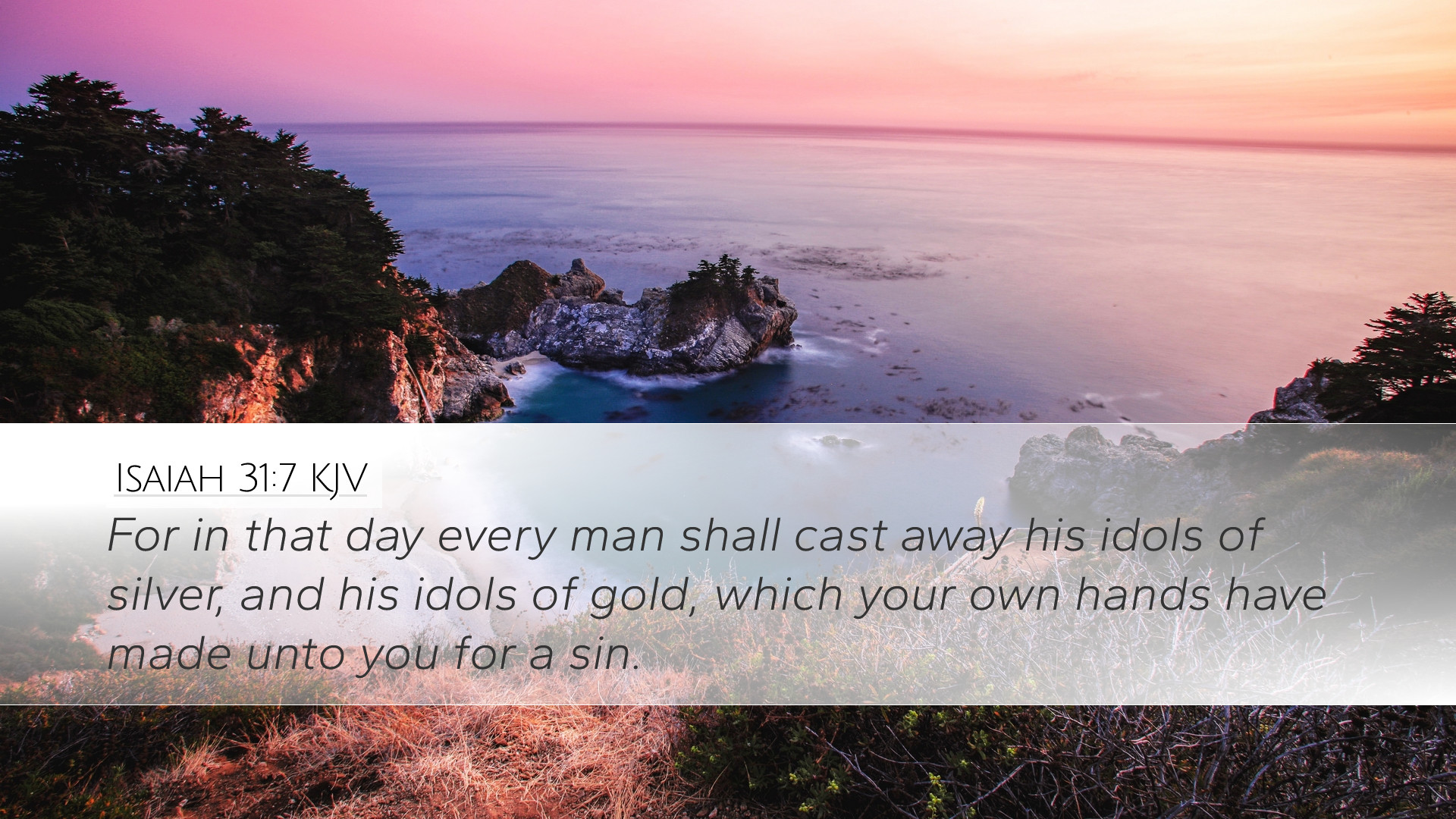Commentary on Isaiah 31:7
Isaiah 31:7 states: "For in that day every man shall cast away his idols of silver, and his idols of gold, which your own hands have made unto you for a sin." This verse speaks profoundly of the impending judgment and deliverance that God promises to His people. It addresses the consequences of idolatry and the call to genuine repentance.
Contextual Background
The context of Isaiah 31 lies in a time of crisis for Judah, threatened by Assyrian military forces. The people were tempted to seek security through alliances and material resources instead of relying solely on God. This prophetic warning from Isaiah serves as a reminder of the futility of human-made idols in light of divine sovereignty and faithfulness.
Thematic Insights
The themes present in this verse significantly resonate with the struggles of faith communities both ancient and modern. Here are several insights drawn from public domain commentaries:
-
Idolatry's Folly: Matthew Henry emphasizes the foolishness of creating idols, noting that anything crafted by human hands cannot adequately represent the Creator. In a time of crisis, reliance on financial or military might becomes a form of idolatry that ultimately leads to downfall.
-
Repentance and Restoration: Albert Barnes points out that this passage signifies a call to repentance. As the Israelites turn away from their idols, they would find restoration in returning to God. This reflects the broader biblical principle that God stands ready to receive those who genuinely seek Him.
-
The Day of the Lord: Adam Clarke notes that "that day" refers to a significant time of judgment and divine intervention. The mention of idols being discarded indicates a pivotal change in trust—from lesser powers to the Almighty. The “day” serves as both a day of reckoning for sin and a day of hope for deliverance.
Historical Interpretation
Throughout history, this verse has been essential for understanding the nature of true worship. Early commentators saw in this a parallel to the spiritual state of Israel, where material possessions and alliances often took precedence over faith in God. As the prophets warned, reliance on earthly assurances can lead to spiritual death.
Application for Today
The conviction against idolatry in Isaiah 31:7 continues to resonate today. Here are some pertinent applications for pastors, students, and theologians:
-
Identifying Modern Idols: Just as ancient Israel had tangible idols, contemporary believers must confront modern forms of idolatry such as power, wealth, and success. This verse calls us to self-examine and cast away anything that stands in the way of our relationship with God.
-
The Call to Repentance: The act of casting away idols represents a vital step in the process of repentance. Churches are encouraged to foster environments where individuals can confess and relinquish their dependence on anything that detracts from divine worship.
-
Encouragement in Trials: In moments of crisis, like those faced by the Israelites, there is a divine invitation to trust fully in God's capabilities rather than in human means. This assurance offers comfort and hope for the church navigating uncertainty in a rapidly changing world.
Concluding Thoughts
Isaiah 31:7 serves not only as a historical admonition to Judah but also as a timeless message for all believers. The call to abandon idolatry is paramount in fostering a genuine relationship with God. In a world rife with distractions, this verse beckons a return to spiritual authenticity, inviting us into deeper communion with the One who alone is worthy of our trust and devotion.


